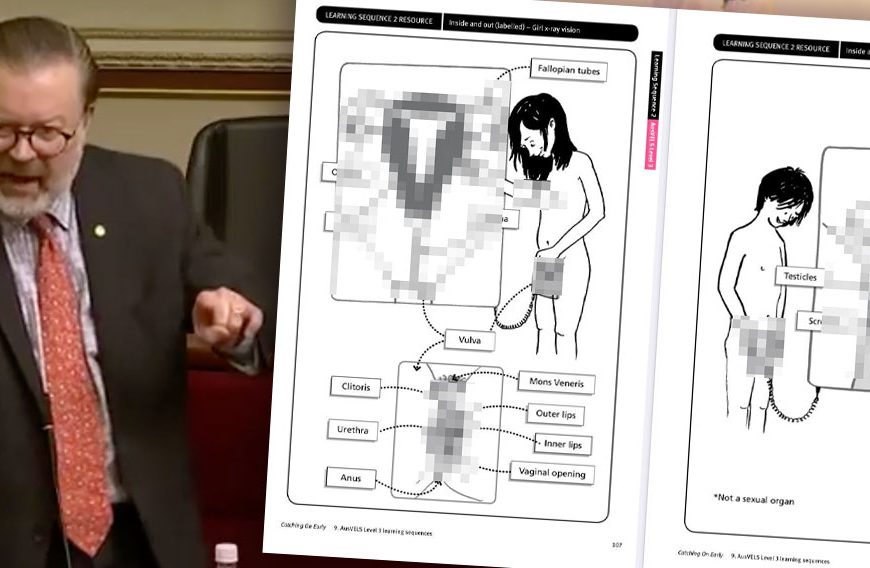Has equality for women been achieved? You’ll hear quite different answers to this question depending on whom you ask. But here’s something we can all agree on: in the West, by almost any measure, today is the best time for women to be alive.
This isn’t to say we’ve created a perfect world — there are always improvements to be made. For this very reason, it’s vital that we understand what inspired the transformation that women have already experienced through the centuries. So long as we know what got us this far, we can maintain our momentum in the right direction.
A serious look at history reveals the immeasurable role Jesus has played in advancing liberty and equal treatment for women. This may sound controversial to modern ears, since many people today view Christianity as a force that holds women back.
Indeed, the failures of Christians should not be ignored. But in fairness, these failures form only part of the story. The way Jesus treated women marked a turning point in the ancient world that has echoed through the centuries. Both in His life and through His church, Jesus has raised the status of women like no one else in history.
Consider just ten of the ways that Jesus has changed the world for women.
1. Jesus’ Treatment of Women
In Jesus’ day, women were widely viewed as inferior. The Greco-Roman world regarded women as property, and didn’t allow women to mix freely with men in public. Jewish culture improved on this by providing a greater place for women in the social sphere, but a woman’s identity was still in her role as a wife or a mother — not as an individual in her own right.
Jesus introduced a dramatic break to this. He accepted women as equals to men in the community of faith, as evidenced by His compassionate and tender interactions with the widow in Nain, the woman caught in adultery, the prostitute who washed His feet, and the women at Martha’s house.
Jesus broke social taboos by speaking to the woman at the well in Samaria. His teaching on divorce elevated women as equal partners with their husbands. Jesus raised eyebrows by recruiting female disciples and choosing illustrations that He knew would appeal to the women in the crowds that came to hear Him preach.
Casting off social and religious conventions, Jesus helped women directly, healed them, made physical contact with them, and allowed them to do the same with him. Women welcomed Him into their homes as a guest, served him, and took care of his physical needs. They supported Jesus financially, anointed Him, and were never treated disparagingly by Him. In the context of the ancient world, Jesus’ interactions with women were revolutionary.
2. Women as Resurrection Witnesses
Those who wrote the Gospel accounts about Jesus also recognised a level of worth for women that was remarkably high for that ancient context.
In telling the account of Jesus’ birth, the Gospel authors depict Mary and Elizabeth as important characters through whom the drama of redemption unfolds. At Jesus’ crucifixion, they inform us that four women remained at the cross even as all the other disciples fled.
Check out Kurt’s new book, Cross and Culture: Can Jesus Save the West?
Most astoundingly, Matthew, Mark, Luke and John all record women as the first witnesses of Jesus’ resurrection. This should get our attention for two reasons. First, the testimony of women was not counted as credible in ancient Israel. And second, the resurrection of Jesus was the single most important historical event for the Christian movement.
In other words, to rest the resurrection event — and the credibility of Christianity itself — on the testimony of women was extremely risky for those writers to do, yet they did it all the same. They were not afraid to offend their contemporaries with the truth: that God chose women for this most sacred duty.
3. Women in Early Church Ministry
Christians have long debated the way God has called men and women to serve in church ministry. No doubt these debates will continue, but it’s clear that the early church afforded women many roles and responsibilities that challenged the cultural status quo.
Following Jesus’ example, the apostle Paul had no problems preaching to a crowd of women and accepting the hospitality of Lydia. In his correspondence, Paul greeted many women personally. He called Phoebe a “sister” and commended her warmly, writing that “she has been a great help to many, including me.” He regarded Priscilla as his “fellow worker in Christ Jesus.” Euodia and Syntyche he called his “co-workers” who have “struggled together in the Gospel ministry along with me.” He held Timothy’s grandmother Lois and mother Eunice in the highest honour for the spiritual heritage they’d passed on to Timothy.
In a modern context, Paul’s instruction for women to “learn quietly” can sound offensive—but that he expected women to be intelligent and informed members of the Christian community was a radical idea for his time. He also affirmed that the Spirit’s gift of teaching had been given to both males and females.
4. The Revolution of Christian Marriage
It is ironic that marriage is viewed as oppressive by so many in the West today. In truth, the Christian ethic of monogamous marriage has proven profoundly liberating for women.
Polygamy, unfaithfulness and the ease with which men could divorce their wives meant that ancient women were treated as second-class citizens.
But the Bible offered a different way: “Marriage should be honoured by all, and the marriage bed kept pure,” the author of Hebrews affirmed. Christian marriage and its ethic of singular devoted love — often captured by the phrase “one flesh” — gave married women the recognition, value and rights they previously lacked, and put them on equal footing with their husbands.
Against a very patriarchal background — both classical and Jewish — Paul stood out in calling for mutual commitment and respect inside of marriage. “The husband should fulfil his marital duty towards his wife, and likewise the wife to her husband,” he wrote to the Corinthian church. “Submit to one another out of reverence for Christ,” he advised married couples in Ephesus. The apostle Peter told his married male readers: “Be considerate as you live with your wives, and treat them with respect.”
Indeed, sociologist Rodney Stark has argued that these values made the early Christian movement very appealing to women because “within the Christian subculture women enjoyed far higher status than did women in the Greco-Roman world at large.”
5. The Abolition of Infanticide
Infanticide — or exposing newborn babies to die alone outside — was a common practice in ancient Rome. The higher social status of men meant that sons were preferred, leaving baby girls especially at risk of infanticide. In fact, historians estimate that there were only 5 women for every 7 men in the Roman Empire, so widespread was this practice.
According to Rodney Stark, “Exposure of unwanted female infants and deformed male infants was legal, morally accepted, and widely practiced by all social classes in the Greco-Roman world.”
Check out Kurt’s new book, Cross and Culture: Can Jesus Save the West?
Along with the Jews, Christians considered infanticide a great moral evil. Rescuing abandoned babies from streets and trash heaps, they eventually transformed the conscience of the empire until the practice was outlawed altogether.
Stark explains that by “prohibiting all forms of infanticide and abortion, Christians removed major causes of the gender imbalance that existed among pagans.”
6. The Reformation and Female Literacy
Literacy is almost as old as language itself. But for most of human history, the ability to read and write was a privilege reserved for the elite.
This changed as the Reformation dawned in Europe. Reformers like Martin Luther and John Calvin believed that the Word of God did not just belong to popes, priests and aristocrats: the Bible, they were convinced, was God’s gift to everyone.
Having translated the Bible from Latin into vernacular languages, Reformers then set out to educate the populace so that everyday people could hear from God directly through Scripture. This included women and girls — a radical idea for the time.
A glance at the schools in your neighbourhood will reveal how devoted Christians have been to education since that time. Governments now shoulder much of the burden for eduction, too. But whether in the public or private sector, education for everyone — including girls — is a project that can be traced directly back to the Reformation.
7. Missionaries and Cruel Cultural Practices
Today it is common to frown upon the work of early missionaries as simply another expression of European colonialism. But what many miss is that missionaries often set out for uncharted lands with an altogether different purpose in mind. Rather than aiming to collect wealth, they came to bring good news and help set captives free.
Such missionaries were far from perfect, but countless women today are profoundly grateful for their lasting legacy on women’s rights.
Before the coming of Christianity, widows in India were compelled by custom to throw themselves onto the burning funeral pyres of their husbands. William Carey fought long and hard until this practice, called suttee, was abolished. Missionaries in China likewise helped end the practice of foot binding. And the campaign against female genital mutilation was launched and has long been championed by Christian missionaries.
8. Seminaries and Higher Education for Women
The first institute in the world to offer a bachelor’s degree to women was Oberlin College, in 1837. Based in Ohio in the U.S., Oberlin was at the time a theologically conservative Christian college led by its president Charles Finney, and the reason it began enrolling women was to equip them as evangelists. In the same year and for the same purpose, Mount Holyoke became the first single-sex institute of higher learning for American women.
Andrea Turpin, the Associate Professor of History at Baylor University, explains that such colleges were “willing to bend cultural norms about appropriate activities for women in order to get more hands on deck for God.”
In fact, until tertiary establishments became widely accessible to women in the 19th century, female seminarieswere the main option for women seeking to earn a higher degree.
9. Christianity and the Suffrage Movement
Faith has played a complex role in many modern social advances, and the suffrage movement is no exception. Among those in favour of the status quo, there were those who used the Bible to argue that only men should vote. But universal suffrage — an idea that ultimately won the West — was no mere secular reform. It was advanced primarily by Bible-believing Christians.
According to Elaine Weiss, author of The Woman’s Hour: The Great Fight to Win the Vote, women of many faith backgrounds were involved — perhaps most notably those active in the holiness movement who saw social reform as part of their pursuit of holiness.
Check out Kurt’s new book, Cross and Culture: Can Jesus Save the West?
Other women joined the fight for suffrage after their connection to the abolition and temperance moments. For them, the right for women to vote was not just a social issue but a moral one grounded in divine justice and human rights.
Harvard University’s Pluralism Project explains that while Enlightenment ideals were also an important influence during this era, “both the movements for the abolition of slavery and for women’s rights were powerful expressions of 19th century Protestant moral reform.”
10. Christian Leadership on Sex Trafficking
In December of 2020, The New York Times dropped a bombshell report exposing the world’s largest pornographic website Pornhub as a honeypot for sex traffickers. This report helped raise awareness about the scourge of sex trafficking in mainstream news. But long before the piece went to print, Christians have been at the forefront of the fight against sexual slavery.
Feminists and Christians have long found common cause on this issue. But it is Christians’ outright opposition to pornography and ‘sex work’ — a moral outlook that is dismissed by many feminists as backwards — that has motivated Christians to take a fearless lead on sex trafficking in the present era.
In a comprehensive list of anti-trafficking organisations provided by Arizona State University, approximately half were explicitly Christian. Representative of this is Laila Mickelwait, perhaps the most well-known advocate against sexual slavery. She recently collected some 2.1 million signatures for the Pornhub petition that has since been presented to leaders around the world — a feat described in the Times article and that forced Pornhub to remove 80 percent of its content.
I can personally attest that among church-going Christians, sex trafficking is one of the major social concerns in the church today. Like many believers, I have good friends who are directly involved in advocacy, rescue, and rehabilitation for victims.
Yes, over its 20 centuries of existence, followers of Jesus have failed many times to honour women and provide them with the voice, freedom and rights that are theirs. But Jesus’ teaching that both male and female are made in the image of God, and his perfect example of this in action, has been a powerful impetus for Christians to make the world a safer, fairer and more beautiful place for the daughters of Eve.
May their example inspire us for the work that remains.
This article originally appeared at the Daily Declaration.


















